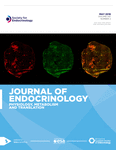Metabolic reprogramming in type 2 diabetes and the development of breast cancer
- Metabolic Reprogramming Laboratory, Metabolic Research Unit, School of Medicine and Centre for Molecular and Medical Research, Deakin University, Geelong, Australia
- Correspondence should be addressed to S L McGee: sean.mcgee{at}deakin.edu.au
Abstract
A wealth of epidemiological data has found that patients with type 2 diabetes have a greater risk of developing breast cancer. The molecular mechanisms underpinning this relationship are yet to be elucidated; however, this review examines the available evidence suggesting that the metabolic abnormalities observed in type 2 diabetes can predispose to the development of breast cancer. Alterations in substrate availability and the hormonal milieu, particularly hyperinsulinemia, not only create a favorable metabolic environment for tumorigenesis, but also induce metabolic reprogramming events that are required for the transformation of breast cancer cells. In addition, the dysfunction and hypoxia of adipose tissue surrounding the breast cancer niche is another putative link that will be discussed. Finally, the mechanisms by which breast cancer cells evade checkpoints associated with nutrient overload will be examined. Experimentally validating these potential links will be important for prediction and treatment of breast cancer in patients with type 2 diabetes.
- Received 22 February 2018
- Accepted 27 February 2018
- Made available online as an Accepted Preprint 27 February 2018
- © 2018 Society for Endocrinology











